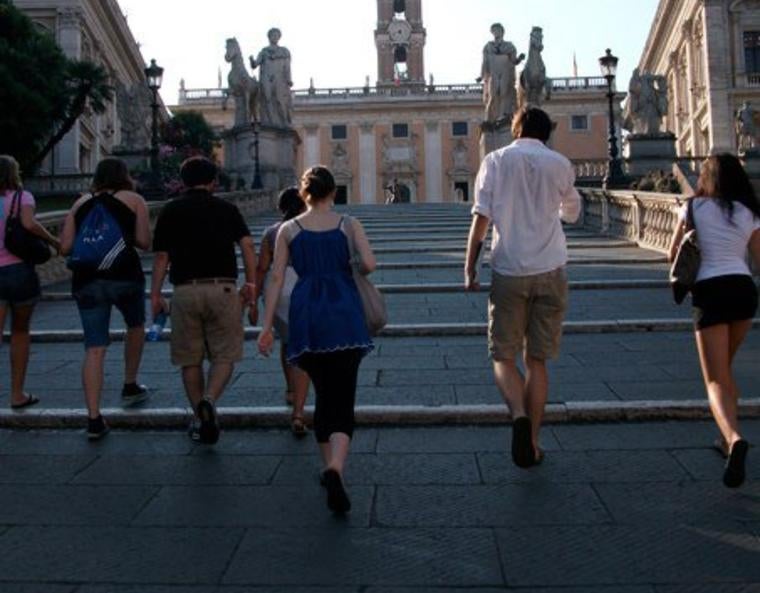
The summer before my sophomore year at Yale, I went abroad with Yale Summer Session to Tuscany, Italy, and studied intensive elementary Italian. My first experience crossing the Atlantic, the trip altered my perception of what it means to be a student both domestic and foreign.
My day of arrival in the Rome airport was primarily an experience of disorientation. Program participants were to speak only Italian while in the country (on the honor system)—immersion at its best, so I felt like I was thrust into a swiftly moving river. I looked for eddies, points of rest, familiarity. Once I located the woman who was to drive our group of program members to Tuscany, I felt shifting sands beneath my feet - I was still in water, chest deep, living in the midst of a language barrier (even though English is widely spoken in Italy). I’m making this sound more serious than it actually was. The “water” was cold, refreshing, and for the most part self-imposed; Italy’s immersive quality made for one of the most enlivening experiences I’ve had.
Intensive intro met for three hours every morning. I was not accustomed to spending this much time in a language course (most language courses at Yale last around fifty minutes), but for me the duration was a crucial way to grow comfortable with extended forays into Italian language thought patterns. As I was repeatedly called upon in class and over the course of three hours, I was forced to remain engaged in a fundamental way with more formal language structures. Outside class, I found that conversing with native speakers required a completely different skill set. I began to think in Italian, from time to time, alternating between faster exchanges with Italian speakers real-time, and more measured expressions of academic language. I felt balance in my acquisition of the language.
On my own, I visited Trento and Bolzano, with their amalgam of Italian and Austrian cultures and architecture. I watched the sun come up over Florence from the steps of the Duomo. I wandered the streets of Bologna during a late-night train layover. The trip via train back towards Rome through the Crete Senesi stands out in my mind. I remember noticing men playing cards at an open-air, rail-line cafe. It was a season of cut fields, round bales stood out in the rolling terrain. Cypress and olive trees were in motion, caught in the breezes.
What sticks with me in retrospect are some of the more “touristy” happenings. In Florence (Firenze): The Golden View overlooking the Ponte Vecchio at night. The lights came on along the Arno during dinner, dull reflections in the dark, languorous current.
In Siena, Florence, and Rome, the program toured the class through historical sites and museums: the Torre del Mangia, the Uffizi, the Foro Romano, among others. All tours were conducted in Italian. I found it blissfully confusing to engage with incomprehensibly beautiful objects and locales explained in semi-inaccessible Italianate thoughts. Whether or not everything was understood language-wise, ideas and sounds came across, and locations and objects, as a result, took on a kind of complicated significance; they carried a mystique beyond standard linguistic constraints.
My identity at Yale, in the context of an experience abroad, has meant to be at once a student, at once an adventurer. The latter may sound trite, but I think it’s impossible to undertake a portion of one’s life abroad, and not be irrevocably altered by the period. I remember returning to the United States with a greater sense of what it means to be a citizen and a student, at once one and apart, interchangeable, at times, irreconcilable at others.